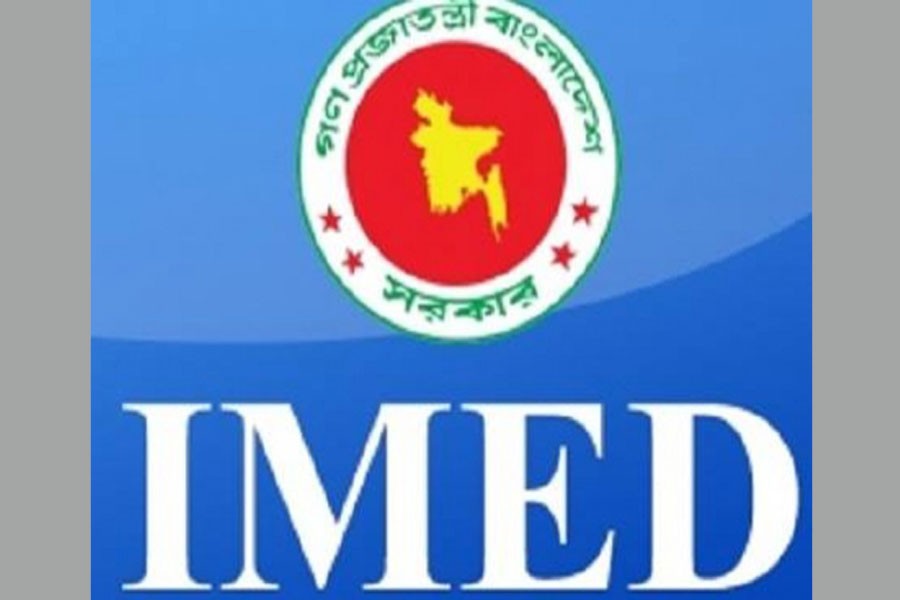The monitoring and evaluation of public sector development projects by a designated government agency produces substandard evaluation reports for lack of in-depth performance analysis, insiders said.
They said the Implementation Monitoring and Evaluation Division (IMED) outsources in-depth evaluation of some ongoing projects and impact assessment of some completed ones, but the evaluators' reports finally fail to sensitize the policymakers or the line ministries and agencies of the government.
People familiar with the situation see imperfect appointments of the external consultants, inadequate budget and limited time for the evaluation of the projects as key reasons for what they called poor-quality reporting.
The insiders alleged that the IMED under the Ministry of Planning in some cases appoints individual consultants or consulting firms without maintaining proper tender-evaluation method.
In many cases 'nepotism' drives the selection process of consultants for the impact evaluation and in-depth monitoring of the development projects, they said Friday.
A high official of the IMED, requesting anonymity, said the Division every year spends a substantial amount of money for outsourcing the project- evaluation works, but those failed to guide undertaking fresh projects or government's development policy-making process.
"The aim of a project's impact evaluation is to observe the outcome of the project. And the outcome and execution experience will be helpful for a better learning before taking up any upcoming development project," he said.
Another top government official said it is interesting that the IMED does not conduct any in-depth or impact evaluation of the development projects rather depends on the outsourcing of the work despite its enriched capacity, widened by the government over the last few years.
The IMED in recent years created three more sectors along with the existing five, increasing the manpower, supporting staffs and logistics.
Another senior Planning Ministry official said in most of the cases many officials at the IMED are busy attending meetings with the consultants for reasons better understood than explained rather than focusing on monitoring to have a quality evaluation report on the public works.
An IMED official said during the consultant appointment, the monitoring of their works and finalisation of the report, IMED officials sit quite a number of times and take 'attendance allowance' amounting to Tk 2,000 to Tk 10,000 for each meeting.
"An official sits for as many as 30-50 meetings and earns even Tk 100,000 to Tk 300,000 a year from the attendance allowances for those meetings," he said.
According to the IMED, it picked up 22 completed projects for their impact assessment and 18 ongoing ones for in-depth evaluation in the current financial year (FY) 2017-18.
In the last fiscal, it selected 22 completed projects for impact assessment while 18 ongoing ones for in-depth evaluation.
The Division in the last fiscal (FY2016-17) kept aside Tk 3.2 million for each of the consulting firms and Tk 1.7 million for the individual consultants for evaluating those development projects.
The IMED officials said they will invite tender shortly to appoint external consultants for evaluating those projects. The consultants will get four months to complete their task of evaluation.
When asked, a consultant, requesting anonymity, said only four months' time for such kind of extensive survey on a project is not enough at all.
The money for such kind of extensive survey for the evaluation of the projects is also inadequate as they need to visit many areas for getting feedback from the beneficiaries of the projects.
Former Finance and Planning Adviser of the caretaker government Dr Mirza Azizul Islam said all the projects should not be outsourced spending the hard-earned money from people's tax.
The appointment of the consulting firms and individual consultants should be on the basis of transparent and perfect evaluation process for the project- evaluation work, he told the FE.
The evaluation reports generated by the IMED should be discussed at the Prime Minister-headed ECNEC meeting in a wide range and the policymakers should take it over for the future learning, Dr Islam suggests.
Economics professor of Dhaka University and Executive Director of the South Asian Network on Economic Modeling (SANEM) Dr Selim Raihan said the consultants or consulting firms should be very professional and well-equipped for conducting the survey for assessing the real outcome of a certain project.
"If the consultant selection becomes imperfect and non-transparent, and the political and bureaucratic influences work, the evaluation report will be faulty and imperfect," he told the FE.
Dr Raihan said the consultants should use advanced technology and methodology to acquire data and information from the field to prepare a quality evaluation or assessment report.
Also, the government should introduce incentives and punishment system for the project-implementing agencies or persons involved so that they work with high dignity, he added.
IMED Secretary Md Mofizul Islam was not available for comment as he is now on a foreign tour.


